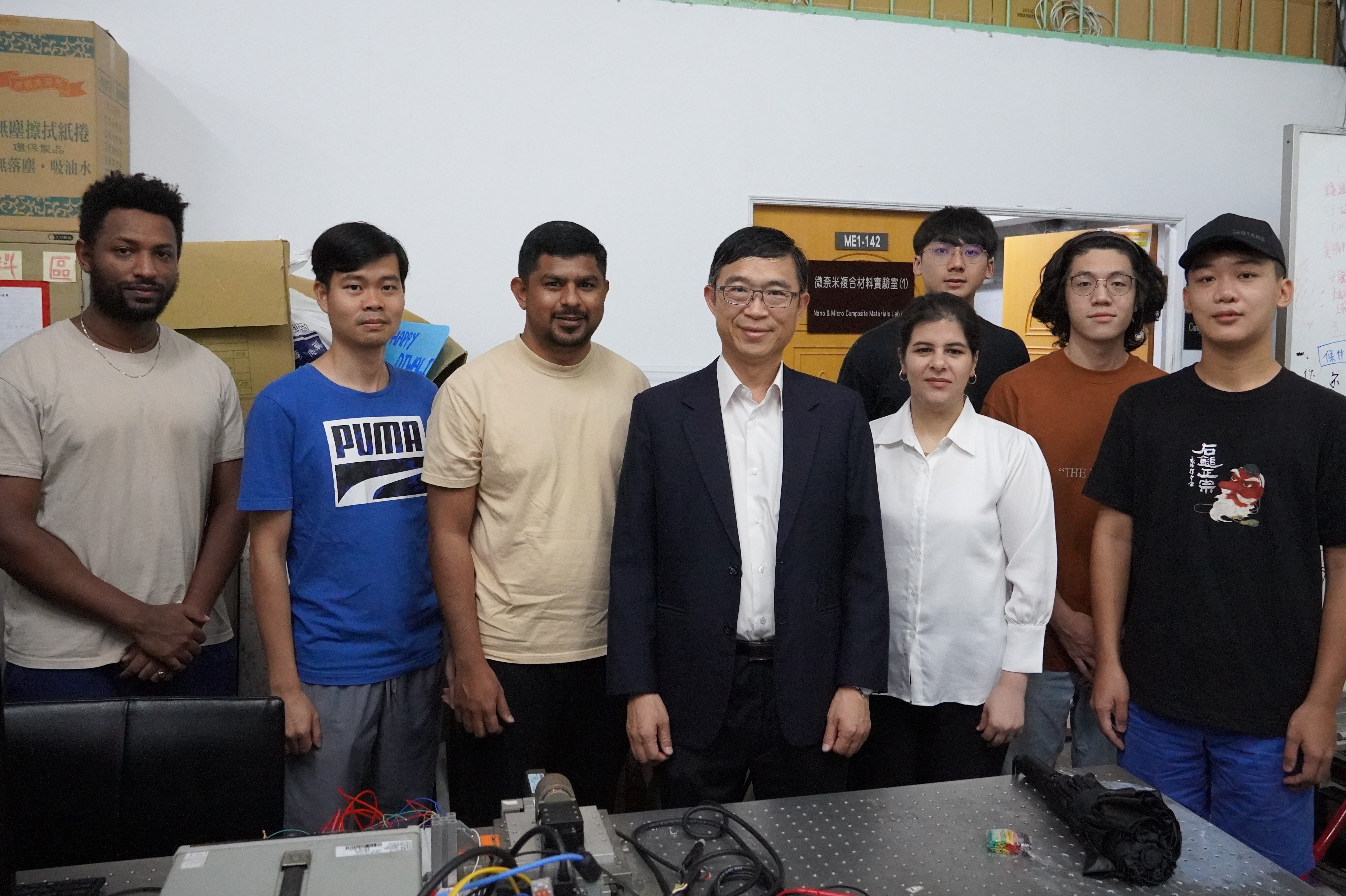Breakthrough in Solid Hydrogen Storage Technology: Taiwan Tech's Professor Huang develops magnesium composites for green industry innovation.
To achieve the goal of net-zero carbon emissions by 2050, hydrogen energy is seen as a key technology for green energy transformation. However, the storage and transportation of hydrogen are the biggest challenges for the large-scale development of the current hydrogen energy industry. In response to this problem, Professor Song-Jeng Huang from the Department of Mechanical Engineering at Taiwan Tech is developing magnesium-based hydrogen storage composites to enhance safety and reduce the cost of hydrogen storage and transportation at normal temperature and pressure. When combined with gray hydrogen and hydrogen fuel cells, the cost of electricity generation is expected to be less than NT$4 per kilowatt-hour.

Professor Song-Jeng Huang from the Department of Mechanical Engineering at Taiwan Tech is developing magnesium-based hydrogen storage composites, a solid-state storage technology that supports the advancement of hydrogen energy.
Song-Jeng Huang pointed out that while the global hydrogen energy supply chain has gradually matured, currently common methods like liquid hydrogen storage and high-pressure gas storage still face challenges related to high energy consumption, cost, and safety, preventing the widespread adoption of hydrogen energy in various industries.
To address these issues, Huang and his team have developed a special processing technique that combines hydrogen with magnesium to create a stable solid form, improving the dynamics of hydrogen absorption and release while increasing storage capacity. Tests show that the “magnesium-based hydrogen storage composites” can absorb hydrogen in 10 minutes and release it in 3 minutes, without any loss in conversion efficiency. This technological breakthrough will advance technologies in hydrogen power generation, hydrogen fuel cells, hydrogen buses, and refueling stations, accelerating Taiwan's journey toward becoming a “hydrogen” nation.

The research team utilized hydrogen storage equipment to perform hydrogen absorption and release with the magnesium-based hydrogen storage composites.
Song-Jeng Huang also mentioned that since magnesium is not a rare earth metal, its cost is significantly lower compared to composites made from titanium and nickel. Overall, the cost of magnesium-based solid-state hydrogen storage is 70-80 times lower than that of high-pressure gas storage or liquid hydrogen storage. This affordability will encourage energy-intensive industries like semiconductors and chemical manufacturing to actively invest in hydrogen power generation, enabling them to use hydrogen energy systems for self-supply and reduce electricity costs.
Taiwan Tech has signed a technology transfer and patent licensing agreement worth NT$23.16 million with ATW Technology Co., Ltd., which will invest an additional NT$30 million to collaborate with Taiwan Tech to jointly promote the development of hydrogen energy. The research and development results have led to patent applications in a total of eight countries in Taiwan and abroad, demonstrating the innovation's breakthrough and market potential.

The magnesium composite material that has stored hydrogen appears darker (right), while the material that has not yet stored hydrogen is shown on the left.
Song-Jeng Huang has dedicated 20 years to researching and developing magnesium-based composites. In addition to “magnesium-based hydrogen storage composites”, he has also developed “magnesium metal matrix composites” to help industries address issues like the strength, toughness, and processability of traditional magnesium alloys, as well as problems related to corrosion and thermal conductivity. These materials can be applied in lightweight designs for vehicles such as cars and airplanes, maintaining the same mechanical properties while reducing costs.
Furthermore, “magnesium metal matrix composites” can be used in biomedical implants, such as bone screws and plates. Huang explains that these implants can be decomposed by the organism itself, reducing the risk of disease-related complications and the burden of secondary surgeries for patients. The materials are still undergoing further research, with potential future applications in clinical medicine to provide safer and more convenient treatment options.
Having taught at Taiwan Tech for 13 years, Huang is grateful for the supportive research and academic environment. His second year at Taiwan Tech was marked by a National Science Council grant that allowed him to serve as a visiting scientist in Israel, an experience that became the starting point for his research on magnesium metal hydrogen storage materials. He hopes to continue developing innovative technologies that benefit industries while also nurturing the next generation of outstanding scientists to contribute to Taiwan's technological development.

Professor Song-Jeng Huang (fourth from the left) takes a group photo with his research team.
